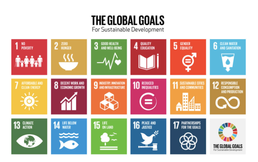 By Sharon Davison, TeachSDGs Ambassador Why explore the global goals? The world is an amazing place with endless opportunities to enrich, inspire, and challenge our thinking. When I think about the world, I immediately think about what I enjoy most and how these personal experiences energize me and provide me comfort and enjoyment. So, why not stretch my thinking to ways to help keep the world healthy and flourishing so that others in the future will be able to enjoy what I do? I am committed to finding opportunities to explore the goals in ways that empower me, others globally, and my students. Together, we can all help take care of the world just by opening up our minds to the possibilities that the goals can offer. The goals are like a blanket, they keep the world healthy. Weaving content… As an educator of young children, I am frequently asked about how I explore the goals and if five- and six-year-old children really understand what they are. I answer, YES! I believe that kindergarten is the perfect place to explore the goals because young children are natural observers and genuinely care about helping to solve problems. I ask my students in the very beginning days of school about what they would like to do to help the world. We make a list. Then after we create a list, we begin planning and deciding how we can explore all of our ideas. I am always amazed each year at what my students want to do. Our list this year…
Just from this list, I instantly could see ways we can connect service-learning, the Common Core State Standards, Next Generation Science Standards, Vermont Early Learning Standards and the Global Goals. Through this content, it is possible to connect what you are learning. For example, we explored the NGSS standard on Earth and Human Activity. This standard covers waste, what we do with it, how our behaviors can impact the world, and sustainability. The CCSS in literacy offer endless connections through writing, speaking, and listening which includes reflection. The other piece is to think about who in your local community you can connect with and invite in to speak about your quest around advocating for people to create less waste and recycle and reuse whenever possible. This type of experience allows children to become proactive, problem solvers for the world. Their passion is authentic, and they share their learning using social media, online journals, oral language through conversations, and the list goes on. Reflection… I created a book for my students to reflect in after we had explored many of the goals. Through reflecting on what we experienced, my students are invited to think inwardly about what they learned and why it was important. After thy create their booklet, they can share outwardly with others. This offers another opportunity to think and reflect on what others notice and learn from their ideas. Remember to celebrate what you are doing and how. Through celebration, you highlight learning and invite people to come and see and listen to your students’ voices about their experiences and what they have learned. The booklet is a great way for children to read and have a conversation about the goals and why they matter. Books are a wonderful way to connect what you are doing and involve many different skills. Even young children through this type of experience develop positive attitudes about their learning. This is where the heart of our work is, through our student's eyes. The impact… I am reflecting and thinking about this past year. I am proud and grateful for the support and opportunities that have been available to me, my students, and their families. Together we have built an awareness of why we need the global goals. Inside kindergarten, we Tweet and blog about what we are learning so others can participate. My students, through a variety of service-learning projects, have been able to be advocates about promoting positive change inside and outside of our school. I have included my students' voices in presentations; I have done so so others can hear their voices and the impact the global goals have had on their learning. Parents are involved and aware and are connecting the goals to their lives at home. I used the booklet as v1 way for my students to reflect and to have an artifact of their thinking. So, positive change is happening one idea at a time. Thinking about next year, I look forward to exploring the goals again alongside my students, their families, and others globally, who like me, want to make the world a better place. The goals offer a lens where I can connect and weave in the content I “have to” explore as well as create authentic learning opportunities through my students' ideas. I believe in people and their ability to collaborate around a common need to make positive change for the world. How can you involve your students, their families, and your local community? This is the question I continue to ask myself because it offers me authentic ways to create opportunities to engage my students in real, solution-based problem solving that creates caring, empathic, and kind stewards of the world. Link to booklet Pictures below of some student work: 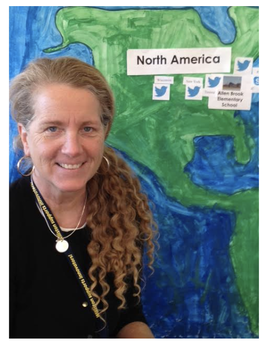 Sharon teaches Kindergarten in a public school. She is a passionate teacher who explores how to connect her students and their families globally. Through the use of technology, Sharon creates a rich, interactive, and collaborative learning culture where kindness and empathy are ever-present. She is a#TeachSDGsAmbassador. You can connect with Sharon on Twitter at @kkidsinvt. By Tobias Simonsen When I write this blog post, I first want to state how proud I am of the young people whom contribute to the Sustainable Development Goals through development projects. Secondly, I want to say thank you, because I have been raised and empowered through a development system, where impact and possibilities are not distributed by rank – but, by desire for change and respect with young people and the civil society in a leading role. I believe that investment in development projects are of immensely high value for societies and the young people involved, whom through their experiences will be active citizens - ready to take care of themselves and their surroundings. My scout organisation KFUM-Spejderne I Danmark, is forming future leaders in Denmark and Tunisia, along with our close friends from Tunisia, Les Scouts Tunisiens. The two organizations have worked together since 2007, through a youth driven development corporation supported by various Danish and international donors, including the Danish Ministry of Foreign Affairs and the Danish Arabic Partnership Program. It all started as an ordinary cultural exchange program between two youth organizations, but developed because of the Arabic Spring, into a society development project, with focus on democracy, youth empowerment, and gender equality in Tunisia and Denmark. In Tunisia, through initiatives with direct and proven impact to the society, and in Denmark through knowledge sharing, reflections upon own practices and capacity building of young people in leading intercultural project roles was achieved. And, there is a need for such corporations. According to the “International Civic and Citizenship Education Study (ICCS, 2016)” internationally conducted by “International Association for the Evaluation of Educational Achievement (IEA)”, engagement in activities to help people in less developed countries is not a high priority for any of the 13-15-year-old participants from the 24 participating countries. The participants simply can’t relate to how international projects are helping their societies. The report clearly states that we need youth driven development projects, where young people directly can get in touch with citizenship and participatory democracy, so they can grow up and lead societies with the values they have gained. Through KFUM-Spejderne and Les Scouts Tunisiens’ corporation, more than 800 scouts and non-scouts have been trained in entrepreneurship to enable them to create their own jobs and to face unemployment head-on. We have made young voice forums, where young people from all over the society in Tunisia have been brought together to get a mutual understand of each other and to receive training within public speaking and appreciative inquiry. We have presented a high number of young people for new cultures and stressed the importance of gender equality, resulting in a more diverse and young board of the Tunisian Scout Association – just to mention a few of our achievements. Youth empowerment and focus on international solidarity is essential to achieve our Sustainable Development Goals. We need development systems which allow young people to advance their skills and knowledge regarding active citizenship, and where mistakes are not seen as a disaster, but as important learning opportunities. We need societies who are investing in their youth and who know that development funds are highly valuable both locally and globally. Thank you for empowering me in the Danish-Tunisian Scout Corporation; let’s achieve the SDGs by giving more young people the chance to participate in development projects as well. KFUM-Spejderne i Danmark and Les Scouts Tunisiens are both members of World Organization of the Scouting Movement, with more than 40 million members, is considered the biggest youth driven peace movement in the world. The partnership has recently been extended until 2021. Follow the partnership on #tunisiadenmark and watch the video with Amal below. Report: http://www.iea.nl/iccs 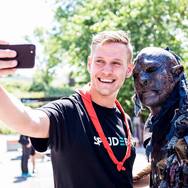 Tobias Simonsen is heading the communication in Denmark for the Danish-Tunisian Scout Corporation. He has been active in the Scouting Movement since he was five years old and were by the age of 20 elected as the youngest District Commissioner in his scout association. Tobias is this summer achieving his Master’s Degree in Organisation and Strategy from Aalborg University, with a Bachelor’s Degree in Business Administration and Economics from the same university. Tobias is currently working at the Royal Danish Embassy in India and has previously worked with business models for scout centres in Tunisia and assisted a PhD project about Danish and German minorities during his time at Hamburg University. You can connect with Tobias on Twitter at @SimonseTobias. |
AuthorSTeachSDGs Team & Contributors Archives
November 2019
Categories |
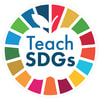
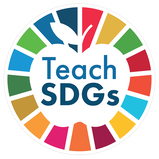
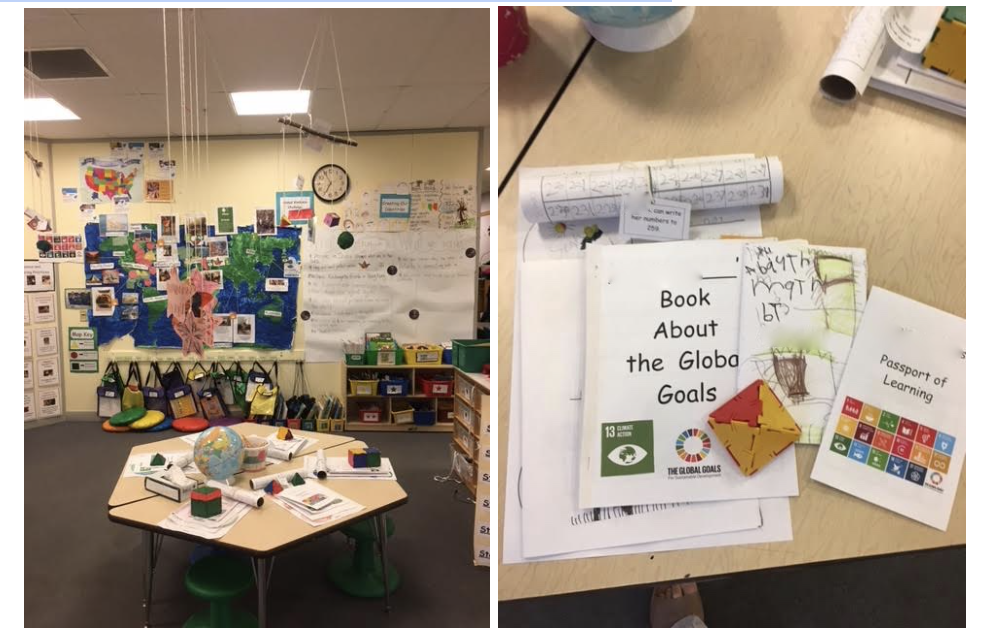
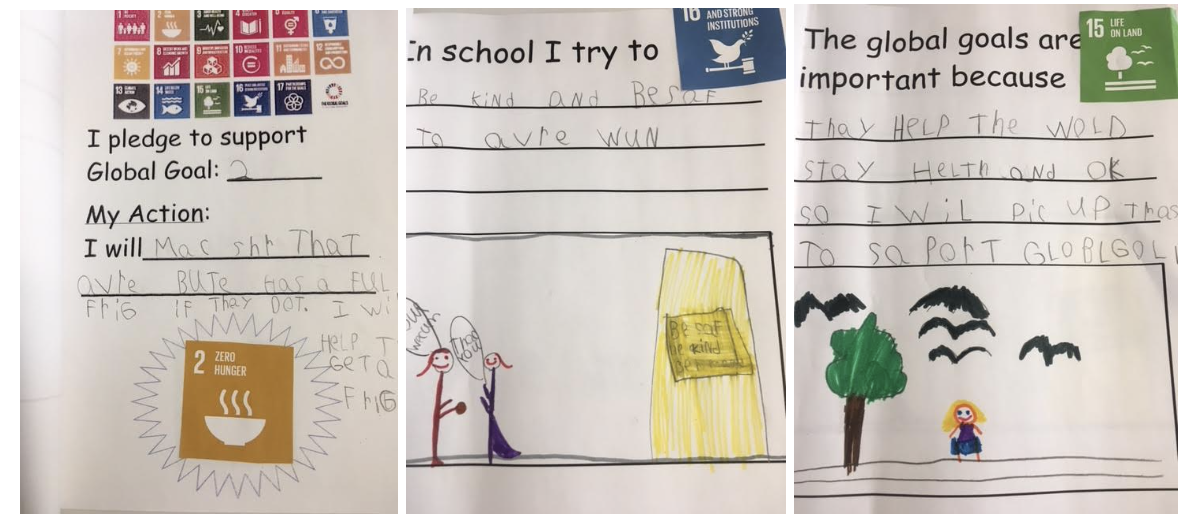
 RSS Feed
RSS Feed